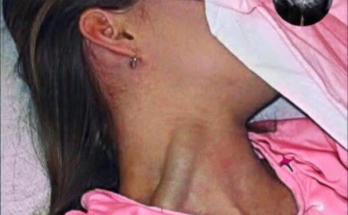An enormous blackhead in the ear… Watch Video below!!👇
-
-
Dead skin cells:
Accumulated dead skin cells can mix with sebum and create blockages.
-
Bacteria:
Certain bacteria on the skin can contribute to the formation of blackheads.
-
Poor hygiene:
Not cleaning the ears regularly can lead to a buildup of debris and promote blackhead formation.
-
-
Hormonal changes:
Fluctuations in hormones, such as during puberty or menstruation, can increase sebum production and cause blackheads.
Treatment Options
Home Remedies:
- Clean the ear regularly: Use a gentle ear cleaner or cotton swabs to remove dirt and debris.
- Apply salicylic acid: Over-the-counter salicylic acid products can help dissolve the oil and dead skin cells that contribute to blackheads.
- Use pore strips: Adhesive pore strips can pull out blackheads from the surface of the skin.
- Warm compress: Applying a warm compress to the affected area can help soften the blackhead and make it easier to extract.
Professional Treatments:
-
Extractions:
A dermatologist or esthetician can manually extract the blackhead using specialized tools.
-
Chemical peels:
Chemical peels can remove the top layer of skin, revealing fresh, unblocked pores.
-
Topical medications:
Prescription medications, such as benzoyl peroxide or retinoids, can help reduce inflammation and control sebum production.
Prevention
- Clean your ears regularly: Use a gentle ear cleaner or cotton swabs to remove dirt and debris.
- Use a moisturizer: Moisturizing your ears can help regulate sebum production.
- Avoid touching your ears: Hands can transfer dirt and bacteria to the ears.
- See a dermatologist if you have recurring blackheads: A dermatologist can diagnose and treat underlying conditions that contribute to blackhead formation.

